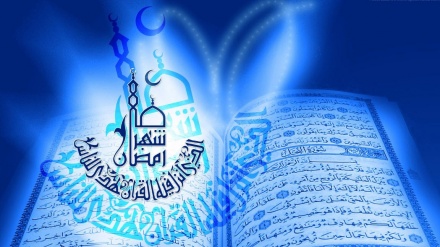Blessed Month of Ramadhan
Welcome to the fourth episode of the series “Blessed Month of Ramadhan.” Fasting, as an educational and self-building exercise, with focus on its spiritual aspects, is observed one month a year, and plays an effective and vital role in purifying our personalities by removing the flaws and wrong habits in one’s character.
The one, who fasts, solely for the sake of God, finds major and fundamental changes in life and behavioural patterns. For instance, he/she becomes more cautious about his/her acts, words and conduct; and as a result moves towards the betterment of the self, the family, the environment, and the society.
We are grateful to God, for providing us another opportunity to welcome blessed Ramadhan, and to better understand and perceive this month spiritual glories. Prophet Mohammad (Blessings of God upon him and his progeny), has said: If one were to properly realize the value of the blessed month of Ramadhan, he would have wished the entire year to be Ramadhan.
The blessed month of Ramadhan brings about numerous blessings and benefits. Each one of us may pay attention to several aspects of these benefits. Obviously, those who properly benefit further from this blessed month; in addition to paying attention to the rules and regulations of Ramadhan, such as avoidance of eating and drinking from dawn to dusk; focus on the educational role of this divine obligation.
One of the educational outcomes of fasting is the firming up of one’s determination or resolve. Resolve means developing a strong will for facing difficult moments or sensitive phases of life. Unfortunately, those who lack strong will are engulfed in fear and anxiety, not sure whether to embark upon or postpone the task facing them. This indecisiveness leads to abandonment of vital issues of life. Such persons can benefit from the blessed month of Ramadhan by putting their trust in God Almighty and observing the fasts, so as to strengthen their spirits, develop patience, build confidence and consequently firm up their resolve. As a matter of fact, the one who fasts struggles against and overcome carnal desires and instincts. Struggles against instincts and carnal desires are referred to as the Jihad Akbar or the Major Jihad by Islam, because in order to carry out this task there is need for an indomitable resolve and perseverance. The Commander of the Faithful, Imam Ali ibn Abi Taleb (AS) has said that the best of people are those, who stand up against their carnal desires and the most powerful of individuals are those who overcome their instincts and carnal desires.
Let us now listen and read ayahs two to four of Surat-al-Baqarah of the Holy Qur’an say:
“This is the Book, there is no doubt in it, a guidance to the Godwary, who believe in the Unseen, and maintain the prayer, and spend out of what We have provided for them; and who believe in what has been sent down to you and what was sent down before you, and are certain of the Hereafter.”
As is clear by the wordings of God Almighty, the Holy Qur’an is the Book of Guidance for everyone, provided they develop the sense to recognize their One and Only Creator and to observe His commandments in life. In other words, those who have faith, are pious, and give practical shape to their belief by observing divine commandments in daily life, have achieved guidance in its proper sense. As is evident in the ayahs that we recited to you, God has pointed out six characteristic traits of the true believers.
The first trait is their firm belief in the Unseen. The Unseen is referred to as those developments and facts which are hidden and are not tangible with our senses, such as God the Omnipresent, Whom vision cannot encompass. The entire universe is divided into the Unseen and that which is perceptible to our senses, and can be felt, heard, observed, and touched.
The second condition of true belief is observation of the ritual prayers. True believers wholeheartedly observe the ritual prayers, whose concept and benefits become evident in their life and behavioural patterns.
The third condition of true belief is to spend in the way of God for the benefit of the poor and the have-nots of the society, as well as on development projects.
The 4th and 5th conditions of true belief, is to have faith in what has been sent down by God to us and what was sent down before us. This reference to the previously revealed scriptures and the Holy Qur’an, which is the final and universal heavenly scripture revealed for our guidance. This means the claim of belief in God, while not believing divine revelations is actually hypocrisy or mockery of faith. In view of this, the Holy Qur’an in several ayahs has stressed obedience to God and to the Prophet.
The 6th condition of belief is faith in the Day of Resurrection and the fact that life does not end with death in the transient life of the mortal world. In other words, the journey of the soul continues and on the Day of Resurrection when all human being are raised to life by God for the final judgement, our deeds determine whether we achieve the bliss of paradise or the lasting damnation of hell.
Now we pay attention to the medical benefits of fasting and the features of an appropriate diet in the blessed month of Ramadhan.
The science of medicine and experience has shown that overeating causes a series of illnesses. In order to maintain one’s health, one should eat less. Experience has proven that those who eat less are healthier than other people. Once Imam Ali (AS) said to one his sons: Do you want me to make you aware of four habits which would make you needless of reference to physicians? The son responded positively and the affectionate father said: Don’t begin eating unless you are hungry. Stop eating while your stomach is not full. Chew the food completely and do not go to bed with a full stomach.
Currently, fasting has captured the attention of physicians across the world as an important factor which secures one’s health. The Prophet of Islam had said: Fast in order to remain healthy. According to the French physician, Dr. Carle, all religions have put emphasis on the need to fast. Based on the studies which have been carried out by French researchers, fasting prevents many ailments such as cancer. They have also realized that fasting reduces signs of advanced age and decreases the possibility of contraction of Alzheimer’s disease. Physicians have carried out extensive studies on the impact of fasting on body. In one research article, we read that in the past 50 years, more than 50,000 patients who suffered from chronic illnesses have been treated by fasting.
Researchers also believe that fasting, upon reduction of consumption of food by 20-40%, activates the body’s immune system. Fasting brings about a number of benefits such as elimination of detrimental materials stored in the body; while also providing vital rest to the digestive system and other parts of the body involved in absorption of food. The digestive system is one of the most active systems in body, because it process food to provide nourishment for other parts of body. In the blessed month of Ramadhan, the digestive system can rest so that the body would remain immune against illnesses, affecting it. The important point is that during fasting, the stomach’s acid is neutralized, thereby preventing the possibility of stomach ulcer. Thus, adoption of an appropriate diet in this blessed month can play a major role for those who fast.
AS/ME


